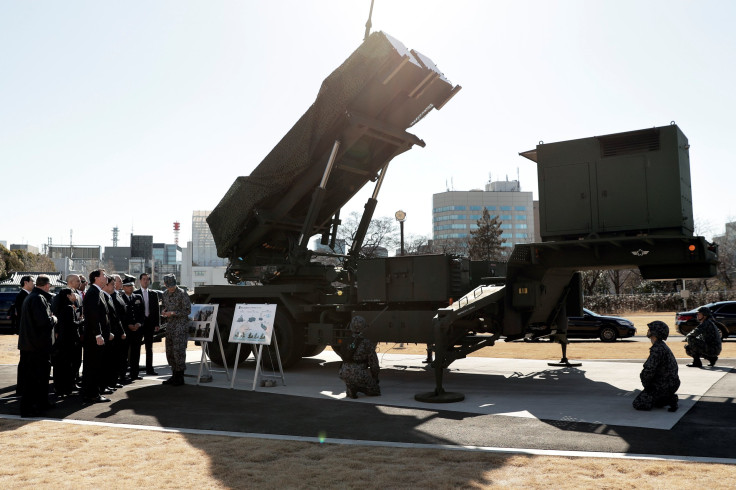Pentagon Removes Jet Fighter Squadrons And Patriot Missile Batteries From Saudi Arabia

KEY POINTS
- Pentagon removes Patriot missile batteries from Saudi Arabia
- Two jet fighter squadrons are also removed
- U.S. Navy presence in the region may also be reduced
Amid the tensions between the Trump administration and the Arab kingdom over oil production, the U.S. is removing four jet fighter squadrons and two Patriot missile batteries from Saudi Arabia, according to a statement by an American official made Thursday. However, it’s not clear whether the struggle to parcel out the Patriot missile batteries or the ongoing oil dispute was the key factor in Pentagon’s decision to remove the defense systems out of the kingdom.
According to Military Times, Republicans accused Saudi Arabia of spreading instability in the oil market when the kingdom slashed prices and ramped up oil production this year. The effects on the global economy were exacerbated by a dry in oil demand in the context of the coronavirus pandemic crisis. The oil price crash and the volatility on the market hurt U.S. shale producers. In late March, some Republican senators warned Saudi Arabia that it risked losing American defense support if it did not change course.
The two Patriot missile batteries that will be removed were guarding oil facilities in Saudi Arabia. Around 300 American military personnel that staff the missile batteries will also leave. In a planned redeployment for upgrades and maintenance, two other Patriot batteries will be removed from the Middle East region. However, the move leaves two Patriot batteries in the Saudi desert, at Prince Sultan Air Base, along with jet fighters and other air defense systems
The decision to scale back the American military presence in Saudi Arabia comes just months after the Pentagon began a military buildup in the region in order to counter Iranian threats. U.S. military personnel and defense systems were sent last year, following a series of attacks on the Saudi oil facilities. The hostilities in the region took place over several months. Iran has denied any involvement in the Saudi oil facilities attack.
According to Geopolitics News, U.S. officials also may also consider a reduction in the presence of the U.S. Navy in the Persian Gulf. The redeployment and reductions of the American military presence in the region are based on assessments that Iran is no longer an immediate threat to strategic U.S. interests. However, some U.S. officials are concerned that new challenges from Teheran might rise in the Middle East following a reduction in the American military presence in the region. Meanwhile, the Trump administration continues its campaign of economic pressure against Iran.
© Copyright IBTimes 2025. All rights reserved.





















